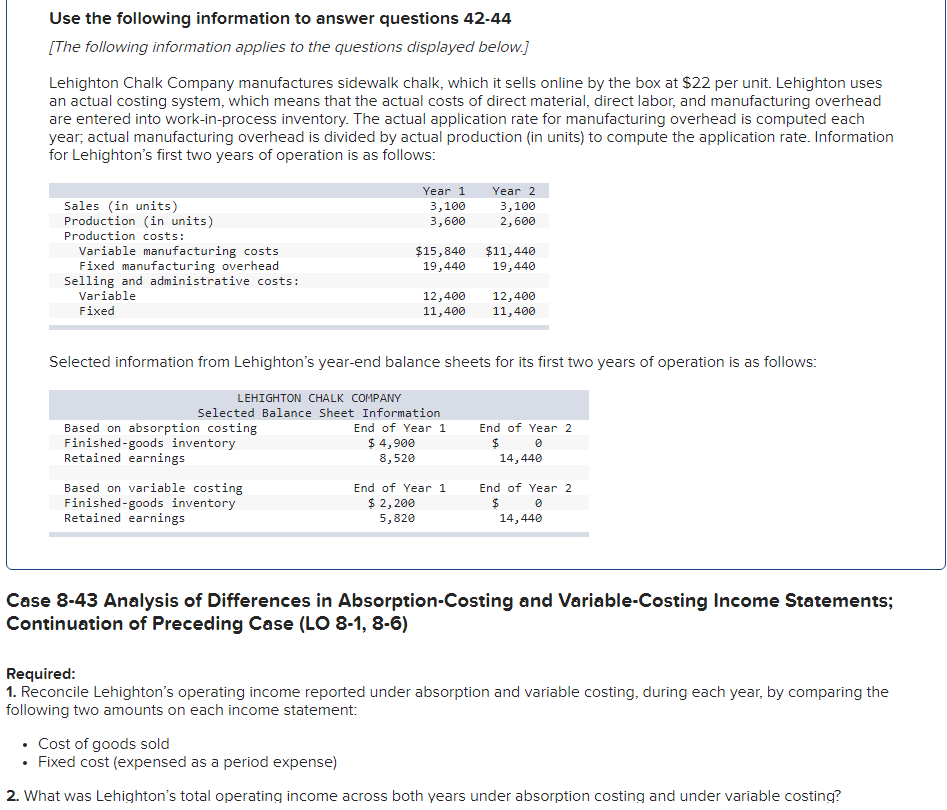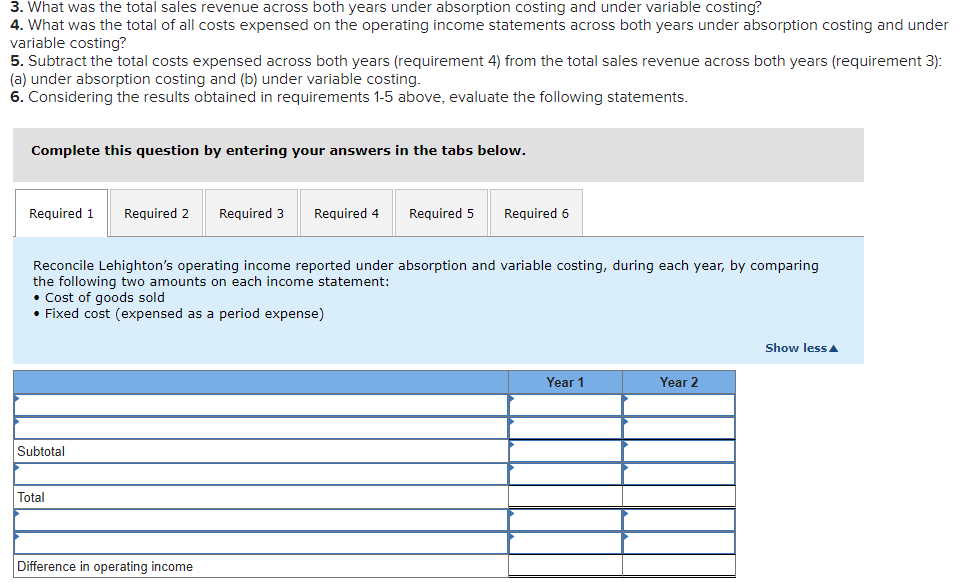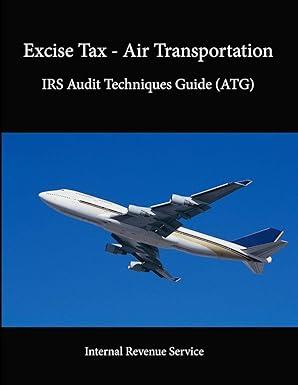Answered step by step
Verified Expert Solution
Question
1 Approved Answer
Use the following information to answer questions 42-44 (The following information applies to the questions displayed below.) Lehighton Chalk Company manufactures sidewalk chalk, which it







Use the following information to answer questions 42-44 (The following information applies to the questions displayed below.) Lehighton Chalk Company manufactures sidewalk chalk, which it sells online by the box at $22 per unit. Lehighton uses an actual costing system, which means that the actual costs of direct material, direct labor, and manufacturing overhead are entered into work-in-process inventory. The actual application rate for manufacturing overhead is computed each year, actual manufacturing overhead is divided by actual production (in units) to compute the application rate. Information for Lehighton's first two years of operation is as follows: Year 1 3,100 3,600 Year 2 3,100 2,600 Sales (in units) Production (in units) Production costs: Variable manufacturing costs Fixed manufacturing overhead Selling and administrative costs: Variable Fixed $15,840 19,440 $11,440 19,440 12,400 11,400 12,400 11,400 Selected information from Lehighton's year-end balance sheets for its first two years of operation is as follows: LEHIGHTON CHALK COMPANY Selected Balance Sheet Information Based on absorption costing End of Year 1 Finished-goods inventory $ 4,900 Retained earnings 8,520 End of Year 2 $ 14,440 Based on variable costing Finished-goods inventory Retained earnings End of Year 1 $ 2,200 5,820 End of Year 2 $ 0 14,440 Case 8-43 Analysis of Differences in Absorption-Costing and Variable-Costing Income Statements; Continuation of Preceding Case (LO 8-1, 8-6) Required: 1. Reconcile Lehighton's operating income reported under absorption and variable costing, during each year, by comparing the following two amounts on each income statement: . Cost of goods sold Fixed cost (expensed as a period expense) 2. What was Lehighton's total operating income across both years under absorption costing and under variable costing? 3. What was the total sales revenue across both years under absorption costing and under variable costing? 4. What was the total of all costs expensed on the operating income statements across both years under absorption costing and under variable costing? 5. Subtract the total costs expensed across both years (requirement 4) from the total sales revenue across both years (requirement 3): (a) under absorption costing and (b) under variable costing. 6. Considering the results obtained in requirements 1-5 above, evaluate the following statements. Complete this question by entering your answers in the tabs below. Required 1 Required 2 Required 3 Required 4 Required 5 Required 6 Reconcile Lehighton's operating income reported under absorption and variable costing, during each year, by comparing the following two amounts on each income statement: Cost of goods sold Fixed cost (expensed as a period expense) Show less Year 1 Year 2 Subtotal Total Difference in operating income Required 1 Required 2 Required 3 Required 4 Required 5 Required 6 What was Lehighton's total operating income across both years under absorption costing and under variable costing? Total Operating Income Absorption costing Variable costing Required 1 Required 2 Required 3 Required 4 Required 5 Required 6 What was the total sales revenue across both years under absorption costing and under variable costing? Total Sales Revenue Absorption costing Variable costing Required 1 Required 2 Required 3 Required 4 Required 5 Required 6 What was the total of all costs expensed on the operating income statements across both years under absorption costing and under variable costing? Costs Expensed Absorption costing Variable costing Required 1 Required 2 Required 3 Required 4 Required 5 Required 6 Subtract the total costs expensed across both years (requirement 4) from the total sales revenue across both years (requirement 3): (a) under absorption costing and (b) under variable costing. Amount Absorption costing Variable costing Required 1 Required 2 Required 3 Required 4 Required 5 Required 6 Considering the results obtained in requirements 1-5 above, evaluate the following statements. (Select "Yes" if the statement is true, and "No" if it is not.) Sales revenue is different depending on the costing method used. Timing is the key in distinguishing between absorption and variable costing. Since Lehighton's combined operating income, across the two-year period, is the same under both absorption and variable costing, then the operating income must be the same within each year under both methods. The difference between absorption and varible costing is caused by the timing with which expenses are recognized
Step by Step Solution
There are 3 Steps involved in it
Step: 1

Get Instant Access to Expert-Tailored Solutions
See step-by-step solutions with expert insights and AI powered tools for academic success
Step: 2

Step: 3

Ace Your Homework with AI
Get the answers you need in no time with our AI-driven, step-by-step assistance
Get Started


